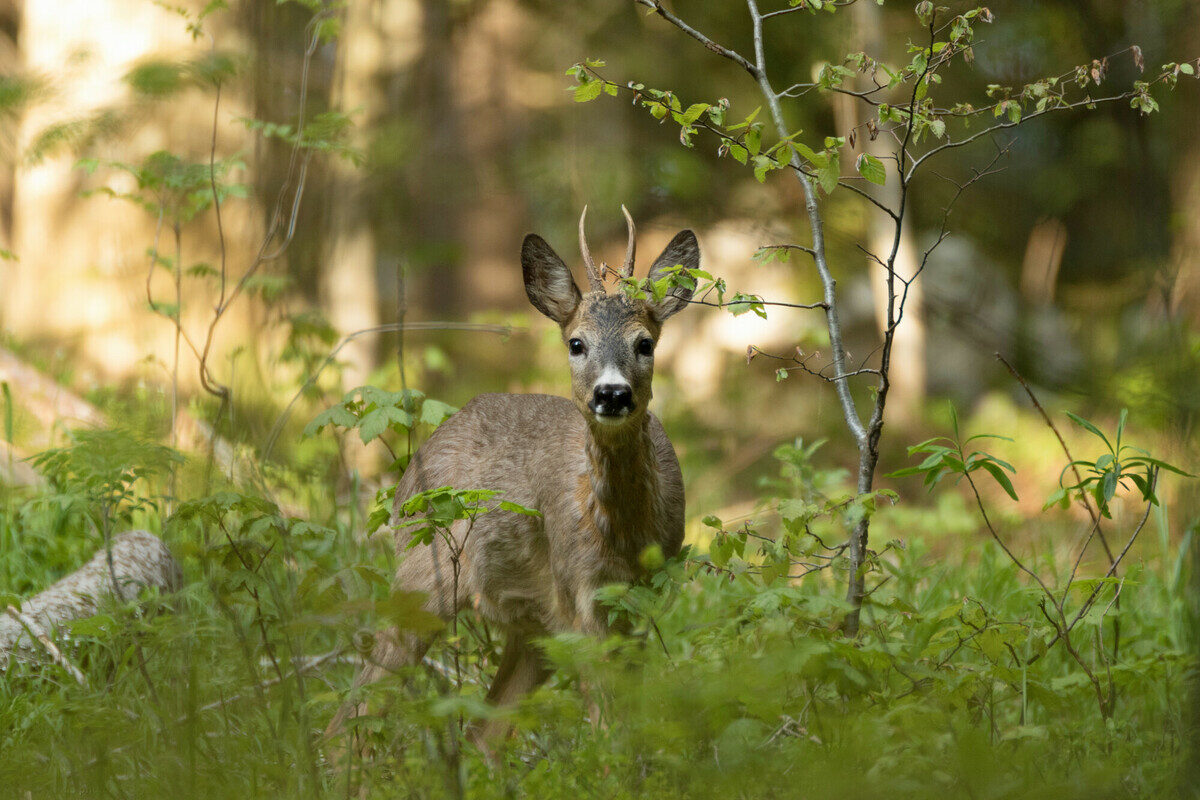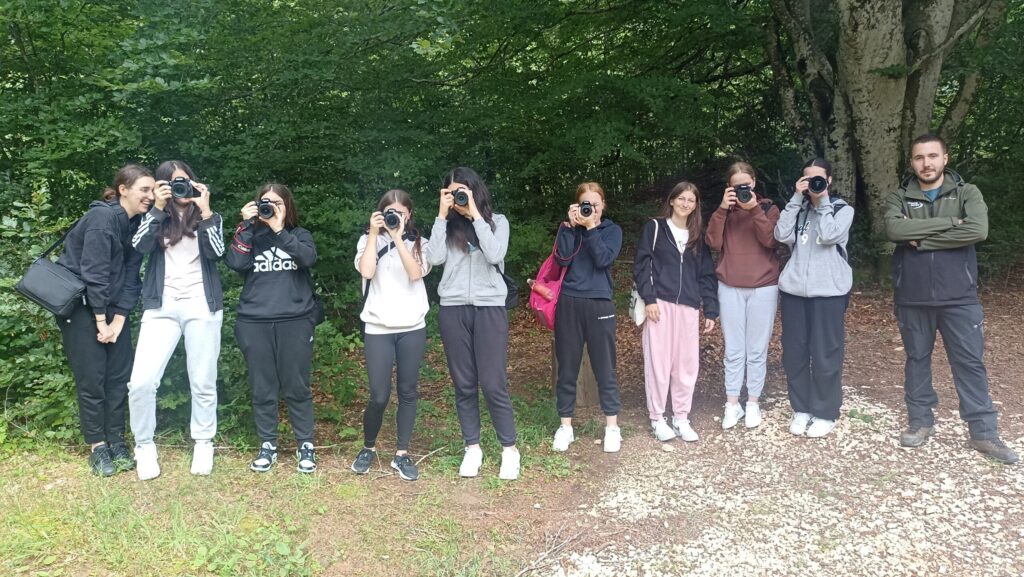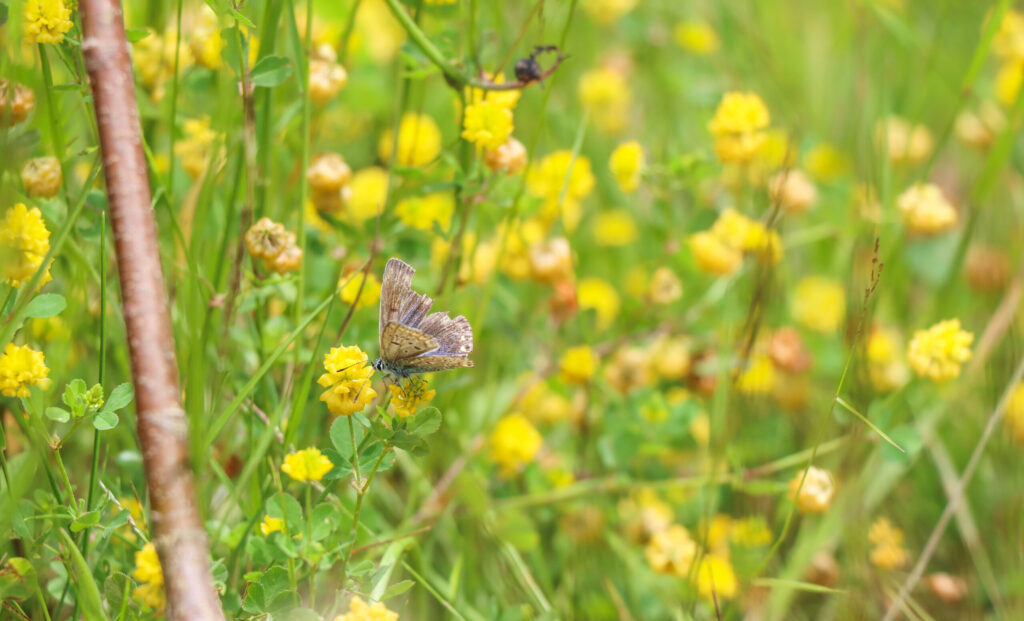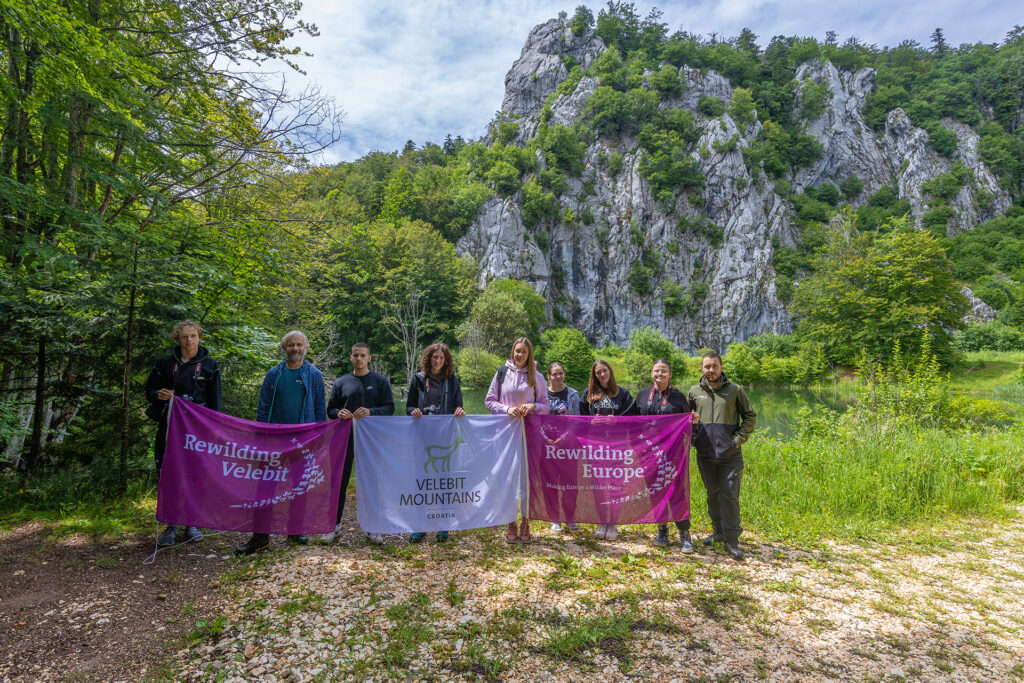The recovery of nature in Croatia’s Velebit Mountains is enabling an economic shift from hunting to wildlife watching. By putting cameras in the hands of local students, and enabling them to connect with their natural environment, a recent photography workshop highlighted the social benefits of this transition.

From guns to cameras
In the Velebit Mountains of Croatia, the ongoing efforts of the Rewilding Velebit team are supporting a gradual resurgence in the area’s spectacular wildlife. This recovery is enabling a fresh and sustainable approach to wildlife management – based on wildlife watching, rather than the traditional practise of hunting – and driving the development of a burgeoning nature-based economy. Five wildlife watching hides, which became operational in 2023, are now generating increasing revenue, with more tourism products in the pipeline.
To promote the benefits of rewilding, and to connect people with Velebit nature, the Rewilding Velebit team are also working hard to build engagement. At the end of June, members of the team organised two consecutive two-day photography workshops in the village of Baške Oštarije, close to the town of Gospić. The 16 Gospić High School students who took part over the four days were taught a range of photography and videography skills, and then given time to practice them capturing wild nature content in the field.
“Hunting is still a very popular pastime in Croatia,” explains Rewilding Velebit communications officer Kruno Bošnjaković. “Getting young people interested in shooting nature with a camera means they are far less likely go out shooting wildlife with a rifle later. It was fantastic to see how putting a camera into the hands of a 17-year-old gave them a new appreciation for wildlife and nature conservation, not to mention sowing the seeds of a cool new hobby and possible future career.”

Forging new connections with nature
The workshop proved inspirational for many of those who took part, with the team receiving a lot of positive feedback.
“I wasn’t really interested in photography at all before this experience,” says Iva Šušić. “But these two days made me realise how amazing it is to show people the beauty of nature through images and film. I really appreciated the approach of the instructors and learned many things about shooting with cameras and smartphones. Now I want to develop my skills by starting to hike and photograph mountains and the landscapes around them.”
Fellow participants Mihaela Ivšinović and Borna Benković were similarly enthused.
“The most useful thing for me was learning how much I need to respect nature and how invaluable it is,” says Mihaela. “I really enjoyed the photography and am thinking about getting more into this hobby.”
“I loved filming videos with the cameras,” adds Borna. “I would love the opportunity to get into filming wildlife and wild places in the future.”

Expert instruction
The Velebit photography workshop was made possible by a private donation, which paid for five brand new DSLR cameras and a selection of lenses, food, and accommodation. The students were taught how to use the cameras and photographic techniques by Rewilding Velebit rewilding officer and accomplished photographer Nino Salkić, complemented by a lesson in shooting video and visual storytelling given by Croatian filmmaker Ante Gugić. They were also given an introduction into rewilding and its benefits.
Now that they have the photographic equipment, the Rewilding Velebit team are planning to hold further workshops. The aim is to hold the next event in early November, for a mixed group of students and adults. In the meantime, the team’s rangers are using the cameras to enhance their own photographic skills across the rewilding landscape.

Invaluable support
Rewilding Europe’s work in our rewilding landscapes is supported by a wide range of highly valued partners. We would particularly like to acknowledge those providing core funding – notably the Ecological Restoration Fund, the Dutch Postcode Lottery, WWF-Netherlands, and Arcadia. Their longstanding support plays a critical role in enabling us to deliver and scale up rewilding impact.
